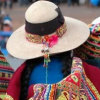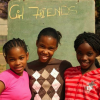Session notes taken by Marta Cooper.
“If society isn’t ready for peace, then the media is responsible.” Onnik Krikorian, GV Caucasus editor
Media’s role in covering conflict in Caucasus was unfortunate. Much inaccurate and nationalist reportage. Onnik himself got tired of it and wanted more tolerant and liberal information and conversation.
Facebook is a great way to maintain contact, build up trust and relationships.
Skype allows you to contact each other free from monitoring. More are connecting via Facebook,
Major issue is reach. Not everyone in society has access to Internet or tools for communication. Friendships are being formed via social media, but this covers a small group of people.
Contrary to popular/mainstream opinion, both Armenia and Azerbaijan can work together. Citizen media can play a key role in conflict transformation. GV is fantastic in this respect, especially Lingua. Important for those outside to know what’s going on. Important to question why are journalists not interviewing people from the other side (in this case, Armenians and Azerbaijanis).
Citizen media also complements the mainstream. Hybrid media are also interesting e.g. how radio and Internet can combine to reach more people and challenge stereotypes. Example of radio stations in Paraguay reporting killings in 1999, which led to mass protest. Would the situation be different today with access to Internet and wider sources of news? Main issue is that Internet use is still not very widespread (rural/urban divide in Paraguay).
Not just important for activists but also journalists: keeping in touch, communicating and fact-checking, checking and challenging mainstream stereotypes. But there still remains tensions between being a blogger and being a journalist, namely in countries where citizen journalism is still slow to take off.
As a journalist, you try to be sure your work isn’t based on speculations. Have to start using journalistic ways of writing (e.g. when rumours of dead spreading during last Armenian elections). Twitter is an excellent tool but journalists need to do more background checking. Should not be too cavalier either e.g. governments have used Twitter to crack down on activists, such as in Iran.
Also key to remember that social media are used to promote peace as well as keep divisions and spread hate. How do we shift this? Do we shift this?
There is an overriding idea of citizen media enabling us to work together, but how effective are these in countries where state does not want to discuss separatism or ethnic conflict (e.g. Turkish/Kurdish conflict, Basque Country)
In some cases, culture is also useful in overcoming stereotypes and supplementing mainstream representations. E.g. in Kenya, Ford Foundation projects funded youth expression through poetry and social media use, namely forums. That said, the Internet remains in an exciting/novel stage, so it is rarely understood as being used for social expression.
Other websites to check:
http://peace.facebook.com/
http://www.mediahelpingmedia.org/
http://www.womensenews.org/
http://www.women-forum.net/











4 comments
For anyone interested, my own personal project (in cooperation with others) designed to overcome negative stereotypes between Armenians and Azerbaijanis can be found online at:
http://www.oneworld.am/diversity/
http://www.tol.org/client/special-report/21197-special-report-common-ground-in-the-caucasus.html